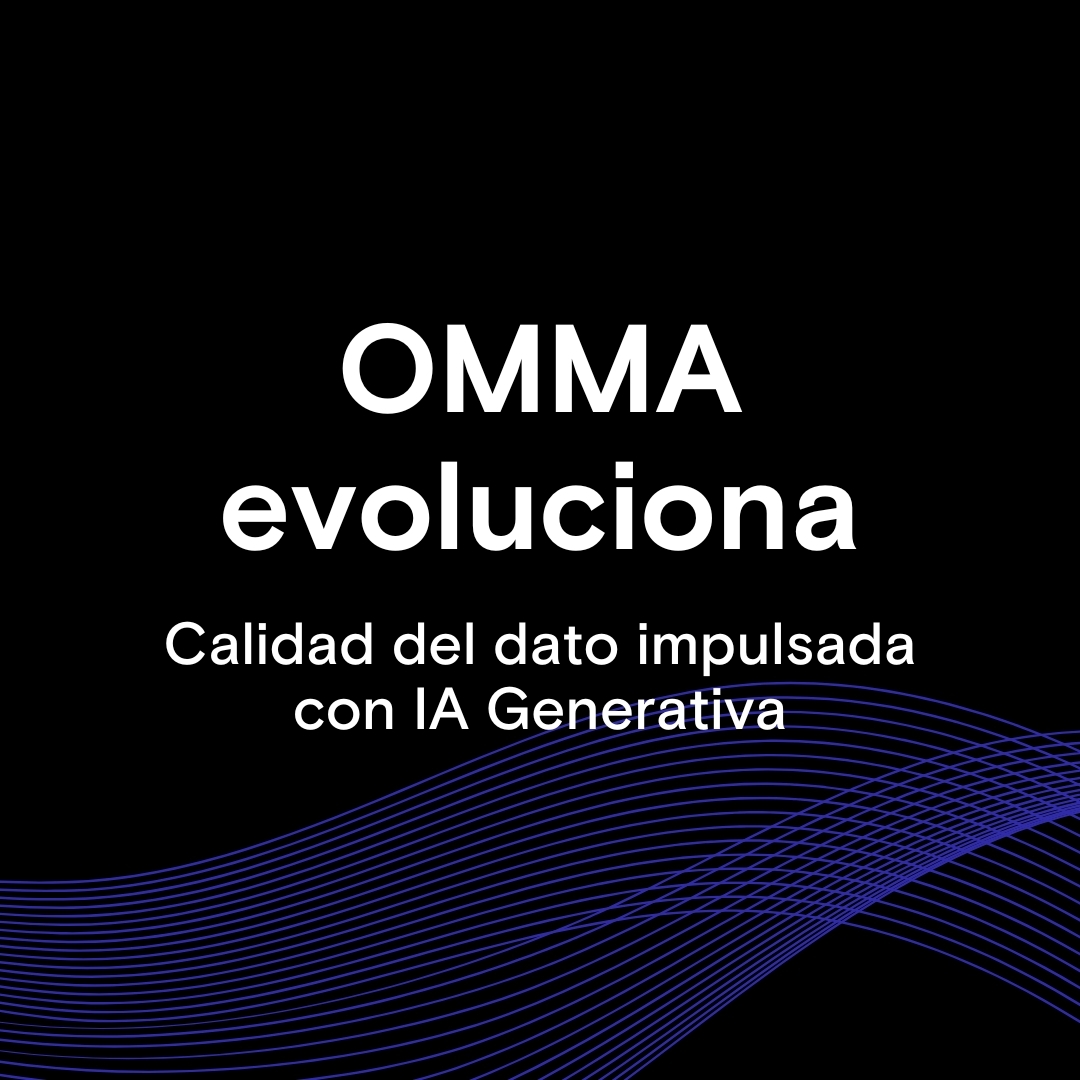Calidad del Dato impulsada con IA Generativa
Fuente: Juan Ramón González
¡Crear y desplegar reglas de calidad de forma simple, sin errores y utilizando lenguaje natural ya es una realidad con OMMA!
Mediante la integración de Modelos de Lenguaje Grande (LLMs), hemos transformado este proceso, haciéndolo más accesible, eficiente y preciso. Esta evolución de nuestra herramienta OMMA permite a los usuarios formular reglas de calidad en lenguaje natural, facilitando así la gestión de datos sin necesidad de conocimientos técnicos avanzados.
Con este desarrollo, hemos evolucionado nuestra solución logrando:
- Simplificación del Proceso: OMMA permite a los usuarios definir políticas de calidad de datos utilizando lenguaje natural. Esta capacidad reduce la complejidad del proceso, haciéndolo más intuitivo y accesible.
- Eficiencia Mejorada: La creación de reglas de calidad de datos es ahora más rápida y menos propensa a errores, lo que acelera la implementación y mejora la precisión.
- Transformación Integral: La posibilidad de generar múltiples reglas a partir de una sola instrucción y convertir sentencias SQL en reglas utilizables representa un avance significativo en la gestión de la calidad de datos.
A nivel de arquitectura en OMMA y LLMs hemos hecho avances significativos, como:
- Arquitectura de Agentes Inteligentes: Hemos desarrollado una estructura de agentes que coordinan todas las acciones necesarias para la creación de reglas en OMMA. Utilizamos modelos GPT-4O y GPT-3.5 turbo para manejar tareas específicas, asegurando precisión y consistencia.
- Modularidad y Escalabilidad: La arquitectura modular facilita la extensión y el mantenimiento del sistema, permitiendo agregar nuevas funciones y adaptarse a cambios en los requisitos de manera sencilla.
- Flujo de Ejecución Definido: Un planificador central coordina el flujo de ejecución, asegurando que cada paso se realice de manera estructurada y fiable.
- Integración End-to-End: Desde la generación de reglas hasta su revisión en el front-end, OMMA proporciona una experiencia de usuario robusta y fluida, integrando la IA generativa en cada etapa del proceso.
Y esto no termina aquí. Seguimos evolucionando OMMA de forma continua para mejorar su funcionamiento, uso y resultados. Por ello, actualmente estamos trabajando en nuevas integraciones, como un recomendador inteligente de reglas y la capacidad de convertir sentencias SQL en reglas utilizables, para seguir optimizando la gestión de la calidad de datos. Además de explorar la implementación de LangGraph para mejorar aún más nuestra arquitectura de agentes.
OMMA ha evolucionado para redefinir la gestión de la calidad de los datos. Con tecnologías como la IA Generativa, OMMA ofrece una solución accesible, eficiente y precisa que se adapta a las necesidades de cualquier organización, mejorando sus resultados y ventaja competitiva.
Te contamos cómo lo hemos hecho posible.
Lee el artículo completo AQUÍ y revoluciona con OMMA la calidad del dato en tu sector.


